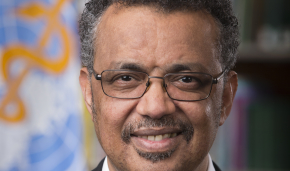Covid-19 reader: 3 December
Can the health and care sector deal with the consequences of compulsory vaccination?
House of Lords Secondary Legislation Scrutiny Committee, report
 The government’s plan to make Covid vaccination compulsory for all health and social care staff has been criticised for being based on ‘superficial’ evidence and being poorly defined.
The government’s plan to make Covid vaccination compulsory for all health and social care staff has been criticised for being based on ‘superficial’ evidence and being poorly defined.
The House of Lords Secondary Legislation Scrutiny Committee, which has been examining the proposals, published a report this week highlighting a lack of detail on the impact the move would have on the health service.
The report found that the proposed legislation lacked practical detail about how key expressions such as ‘face-to-face’ would be applied. It also said that an explanatory memorandum from the Department of Health and Social Care was silent on what contingency plans were in place to cope with expected staff losses, which are expected to be particularly acute in London.
The report argues that the Department had failed to explain why the current level of vaccination in health and care workers (92%) is insufficient, whether a 100% vaccination rate is feasible, and why local action is not possible to deal with facilities falling below the 80% minimum staff vaccination rate recommended by the Scientific Advisory Group for Emergencies.
The Department’s original impact statement to support the proposal had highlighted some 208,000 unvaccinated workers in the sector. It anticipated just 54,000 (26%) additional staff being vaccinated as a result of the compulsory requirement, and 126,000 losing their jobs through non-compliance. The Lords point out that the figures provided by the Department are confusing, given that 46,000 staff are thought to be medically exempt, but they are unconvinced about the value delivered in any case.
‘This seems a disproportionately small gain for legislation that is anticipated to cause £270m in additional costs and major disruption to the health and care provision at the end of the grace period,’ they said. ‘The House may expect to be provided with some very strong evidence to support this policy choice and the Department of Health and Social Care has signally failed to do so.’
The £270m is the estimate for the cost of recruitment and training to replace unvaccinated staff. But the impact statement had acknowledged that the effective capacity of the labour market to respond to this change is unknown. And the Lords were concerned about how the loss of capacity could be absorbed.
UK booster vaccines backed by study
The Lancet, report
A study looking into the effectiveness of Covid-19 booster doses has found that all seven vaccines tested raised immunity against the coronavirus.
The University of Southampton-led research – the first to look into how well booster jabs work – looked at vaccines by AstraZeneca, Novavax, Pfizer/BioNTech, Valneva, Janssen, Moderna and Curevac, although the latter was withdrawn from further clinical development in October 2021.
Published in The Lancet, the study looked at the use of these vaccines as a booster dose in nearly 3,000 people, following an initial course of either the AstraZeneca or Pfizer vaccines. All vaccines tested boosted immunity after an initial course of the AstraZeneca vaccine, and six vaccines boosted immunity after the BioNTech (the exception being Valneva, which ‘did not achieve predefined criteria for minimum clinically important difference’).
All of the vaccine that boosted immunity did so in older and younger people, although there were differences in response between specific booster vaccines.
The Pfizer and Moderna vaccines, which are being used in the UK as boosters, were reported as giving the best boost to antibodies and T-cells. All vaccines showed an acceptable side-effect profile, although some schedules caused more of a reaction than others.
The researchers found good response to all variants of the virus including Alpha, Delta and the original strain. However, the newly emerging Omicron variant was not tested in the study.
UK cases and the emergence of Omicron
UK government, Covid-19 dashboard
Cases of Covid-19 continue to rise in the UK. On Thursday, reported cases reached nearly 54,000 – the highest single day of reporting since July. The seven-day average figure of just under 45,000 also represents an increase of more than 30% since early in November.
However, hospitalisations remain relatively flat. Although the latest daily average for Covid admissions of around 750 is still high – and putting significant pressure on NHS services – the numbers do not seem to be following the same upward trend as cases. The numbers in hospital remain around the 7,500 mark. And the numbers in mechanical ventilation beds may not be improving but appear relatively stable up to the end of November, with a seven-day average of around 920.
Some 19 million people have now received a booster or third dose of vaccine, representing about one third of the population aged 12 and over.
The major concern currently is about the emergence of the new Omicron variant. Official data suggested that the UK had formally detected 32 cases, although the Delta variant remains the dominant strain of the virus.
The World Health Organization said this week that at least 23 countries from five of its six regions had now reported cases of Omicron and this number was expected to grow. WHO director-general – Tedros Adhanom Ghebreyesus (pictured) – said the new variant had understandably captured global attention, but that it should not come as a surprise. ‘This is what viruses do,’ he said. ‘And it is what it will continue to do as long as we allow it to continue spreading.’
But he criticised blanket travel bans for penalising countries for sequencing and reporting the variant so rapidly. Instead, he called for ‘rational, proportional risk-reduction measures’ in keeping with international health regulations. This would involve screening passengers before travel and on arrival and quarantining international travellers. ‘Blanket travel bans will not prevent the international spread of Omicron, and they place a heavy burden on lives and livelihoods,’ he said.
He said that globally there was a ‘toxic mix’ of low vaccine coverage and very low testing, creating a ‘recipe for breeding and amplifying variants’.
Related content
We are excited to bring you a fun packed Eastern Branch Conference in 2025 over three days.
This event is for those that will benefit from an overview of costing in the NHS or those new to costing and will cover why we cost and the processes.